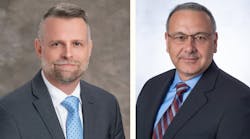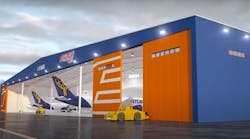When maintenance work on U.S. aircraft gets outsourced, concerns tend to arise about the validity of work done outside U.S. borders. Aircraft mechanics in other countries aren’t always held to the same standards as American mechanics, even when working on the same aircraft.
The Poe amendment
With this in mind, Congressman Ted Poe (from Texas’s second district) proposed an amendment to extend drug and alcohol testing to everyone performing repairs on U.S. aircraft. This amendment passed on Sept. 20, 2007.
Previous regulations held mechanics within the United States to random alcohol and drug screening but did not broaden that standard to mechanics who work on U.S. aircraft at foreign repair stations.
“It makes no sense to require U.S. mechanics, as safety-sensitive employees, to undergo various levels of drug and alcohol testing, if workers doing the exact same work — on the exact same aircraft — are exempt from this requirement simply because the station is located in another country,” says Poe.
The last round of FAA authorization, which is required every five years, expired 10 days after the Poe amendment passed. This means that it’s been a year since moves were made to level the playing field for all mechanics working on U.S. aircraft.
FAA reauthorization
In June, the Senate cleared a three-month reauthorization extension through Sept. 30, 2008. The previous extension was set to expire on June 30.
Since then, the House of Representatives has completed its actions for a three-part proposed reauthorization bill, but the Senate has not and likely won’t before a new president is elected. The proposed bills from the two houses are not the same, which means that the process will be further dragged through conference committees to find an agreeable solution.
The House of Representatives proposes that FAA aviation safety inspectors conduct at least two separate inspections yearly on each foreign repair station performing work on U.S. air carrier aircraft or components. Its second tenet regards modification of requirements of the Poe amendment. The third part suggests updating fee schedules for certification of foreign repair stations to cover the entire cost of certification. This proposed legislation does not allow the FAA to delegate inspections of foreign repair stations to other authorities.
The FAA opposes the House of Representatives’ proposed bill. The FAA says the bill would require additional FAA resources, is not supported by safety data, impairs implementation of bilateral agreements, and could cause retaliatory treatment by other countries.
The version of legislation proposed by the Senate does not include anything about increased inspections, which the FAA finds more favorable.
As of June of this year, no reauthorization legislation regarding expired FAA authorization had passed. An FAA PowerPoint presentation states, “There’s no indication at this time when any legislation may be passed and what its final content will be!”
Safe Air
In the meantime, Senators Claire McCaskill (D-MO) and Arlen Specter (R-PA) introduced the Safe Aviation Facilities Ensure Aircraft Integrity and Reliability (SAFE AIR) Act of 2008 on June 5 of this year. This legislation aims to “ensure that domestic air carriers receive maintenance work at fully certified facilities regularly inspected by Federal Aviation Administration (FAA) officials.”
The SAFE AIR Act would require that:
- American aircraft receive maintenance only at FAA-certificated repair stations
- FAA inspectors perform inspections of certified foreign repair stations twice yearly, with at least one inspection being performed without advance notice
- Employees performing maintenance at foreign repair stations undergo drug and alcohol testing
- Certified foreign repair stations would have to comply with Transportation Security Administration (TSA) security standards
This piece of legislation seemingly aims to counteract many of the concerns about outsourcing. It has not yet gone to debate. Introduced bills go first to committees that deliberate, investigate, and revise them before they go to general debate. The majority of bills never make it out of committee.
The time for action is now. If you want to make sure that the SAFE AIR act of 2008 doesn’t remain “just a bill,” get involved. If you’d rather not see this piece of legislation make it to the House or Senate floor, get involved. Find out who your congressperson is at www.house.gov and find your senator at www.senate.gov. Tell them your thoughts.
Any decisions about the FAA, the SAFE AIR act, or any other pending legislation that would affect the aviation community will do just that — affect you directly. Voice the concerns of the maintenance community so that it can reap the rewards of action.
Additional ReSources
Track SAFE AIR legislation progress at: www.govtrack.us/congress/bill.xpd?bill=s110-3090
Senator McCaskill: www.mccaskill.senate.gov
Congressman Poe: www.poe.house.gov
Senator Specter: www.specter.senate.gov


